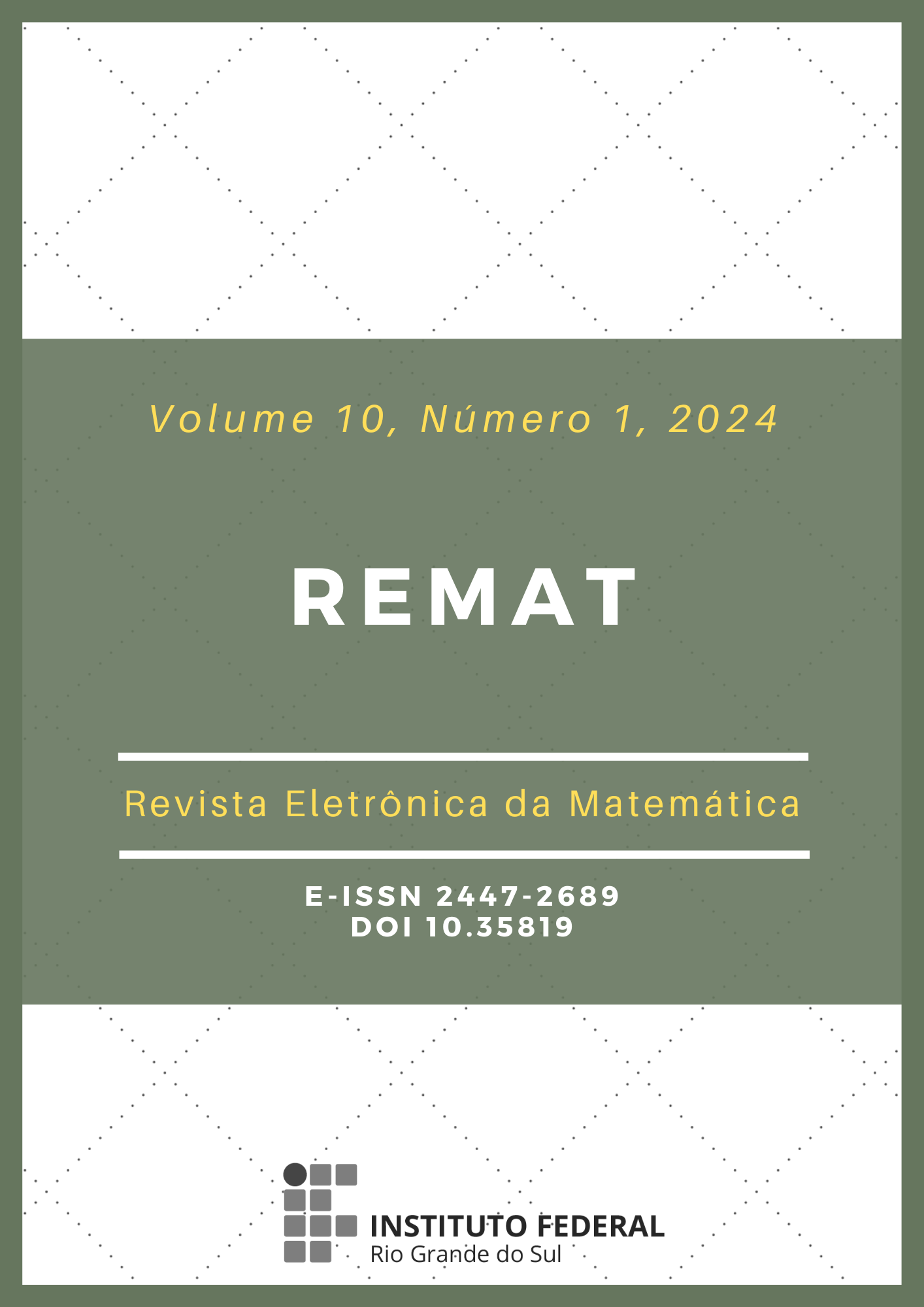Integration in finite terms: the Liouville principle and the Ostrowski method
DOI:
https://doi.org/10.35819/remat2024v10i1id6556Keywords:
elementary integration, integration in finite terms, Liouville principle, Liouville theorem, Ostrowski theoremAbstract
Since the beginnings of Differential and Integral Calculus, many mathematicians have dedicated years of their lives to the development of this subject. They improved several techniques for computing the integrals of various classes of functions, but there were some of them that they could not calculate in terms of elementary functions (functions expressed by a finite number of polynomials, radicals, exponentials, logarithms, and trigonometric functions, using a finite amount of algebraic operations and function compositions). A question then arose about whether such integrals were in fact elementary. This led to the French mathematician Joseph Liouville developing a theory of integration in finite terms. In this paper, we presenting Liouville's brilliant reasoning and a generalization proposed by Ukrainian mathematician Alexander Ostrowski. Besides that, we will also be displaying possible applications of their results in the calculation of some integrals.
Downloads
References
ABEL, N. H. Précis d'une theorie des fonctions elliptiques. Journal für die reine und angewandte Mathematik, v. 4, p. 236-277, 1829. Disponível em: http://eudml.org/doc/183143. Acesso em: 11 mar. 2024.
CHERRY, G. W. Integration in Finite Terms with Special Functions: the Error Function. Journal of Symbolic Computation, v. 1, n. 3, p. 283-302, set. 1985.
CHURCHILL, R. V. Variáveis complexas e suas aplicações. São Paulo: McGraw-Hill, 1975.
FIGUEIREDO, D. G. de. Números irracionais e transcendentes. Rio de Janeiro: SBM, 1985.
GONÇALVES, A. Introdução à álgebra. Rio de Janeiro: Impa, 1979.
HARDY, G. H. The Integration of Functions of a Single Variable. 2. ed. Cambridge: Cambridge University Press, 1916. Disponível em: https://archive.org/details/cu31924001539570. Acesso em: 11 mar. 2024.
HEFEZ, A. Curso de álgebra. v. 2, versão preliminar, 2002. Disponível em: https://docplayer.com.br/175412716-Curso-de-algebra-volume-ii-versao-preliminar-abramo-hefez.html. Acesso em: 22 jan. 2023.
KAUR, Y.; SRINIVASAN, V. R. Integration in Finite Terms: Dilogarithmic Integrals. Applicable Algebra in Engineering, Communication and Computing, v. 34, p. 539-551, jun. 2021. DOI: https://doi.org/10.1007/s00200-021-00518-3.
LIOUVILLE, J. Mémoire sur l’intégration d’une casse des fonctions transcendentes. Journal für die reine und angewandte Mathematik, v. 13, p. 93-118, 1835. DOI: https://doi.org/10.1515/crll.1835.13.93.
MAMEDE, R. Funções sem primitiva elementar. 2013. Disponível em: https://pt.scribd.com/document/364150706/Funcao-sem-primitiva-pdf#. Acesso em: 19 jan. 2023.
MORAES FILHO, D. C. de. “Professor, qual é a primitiva de ?” (O problema de integração em termos finitos). Revista Matemática Universitária, n. 31, p. 143-161, dez. 2001. Disponível em: https://rmu.sbm.org.br/wp-content/uploads/sites/27/2018/03/n31_Artigo05.pdf. Acesso em: 11 mar. 2024.
OSTROWSKI, M. A. Sur l'intégrabilité élémentaire de quelques classes d'expressions. Commentarii Mathematici Helvetici, v. 18, p. 283-308, 1945. DOI: https://doi.org/10.1007/BF02568114.
RISCH, R. H. The problem of integration in finte therms. Transactions of the American Mathematical Society, v. 139, p. 167-189, maio 1969. DOI: https://doi.org/10.2307/1995313.
RITT, J. F. Integration in finite therms: Liouville’s theory of elementary methods. New York: Columbia University Press, 1948.
ROSENLICHT, M. A. Liouville’s theorem on functions with elementary integrals. Pacific Journal of Mathematics, v. 24, n. 1, p. 153-161, 1968. DOI: https://doi.org/10.2140/pjm.1968.24.153.
Downloads
Published
Issue
Section
License
Copyright (c) 2024 REMAT: Revista Eletrônica da Matemática

This work is licensed under a Creative Commons Attribution 4.0 International License.
REMAT retains the copyright of published articles, having the right to first publication of the work, mention of first publication in the journal in other published media and distribution of parts or of the work as a whole in order to promote the magazine.
This is an open access journal, which means that all content is available free of charge, at no cost to the user or his institution. Users are permitted to read, download, copy, distribute, print, search or link the full texts of the articles, or use them for any other legal purpose, without requesting prior permission from the magazine or the author. This statement is in accordance with the BOAI definition of open access.













 https://orcid.org/0000-0002-0893-7426
https://orcid.org/0000-0002-0893-7426


















